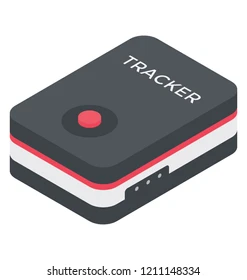Why do I keep seeing digital ads after talking about them or searching for something related online?
(READING TIME: A 7-minutes read but a very interesting one at that)
I have gotten asked by quite a few person’s about this article you are reading and here, I attempt to give a more accurate and appropriate I formation.
YES! We’ve all been there 😁
You’re having a conversation with a friend about a desired service/product you will like to get and boom, minutes or just matter of hours later and it’s there staring in your face. You’re like, what the heck is this? Your social media timeline just pops it up and you’re wondering. Your flags are raised and suddenly, you feel vulnerable then pop the question: ‘Are Facebook/Instagram/YouTube listening to us’? Seeing digital ads after talking about something may lead you to think so. While you’re right to think so, it’s nothing to be concerned about.
There’s a reason this is happening, but “listening” is probably not it.
Talking about something and seeing a digital ad for it.
Or
Thinking about something and seeing a digital ad for it. Even dreaming about something and seeing a digital ad for it. 😂
Peoples’ collective experiences like these have led many to ask the question, “Is technology listening to us?” It’s a question that has been blatantly posed to social media leaders like Mark Zuckerberg (Facebook) and Adam Mosseri (Instagram) before being sold off to Meta.
Time and time again, this guys have denied their apps used microphone to listen to it’s users, so what’s happening.
IT’S ILLEGAL TO EAVESDROPS
The general consensus among industry experts is that they are telling the truth. For one, doing so would be illegal. Secondly, the logistics of actively listening to, recording and storing conversations just don’t make sense when you really think about it. so what is happening?

TRACKING, NOT LISTENING
So if Facebook and Instagram aren’t listening, then how do our conversations and thoughts about products magically turn into ads?
In a way, social platforms are “eavesdropping,” but just not in the way we think.
We see digital ads after talking about something because social media apps like Facebook and Instagram are extensively tracking our actions, both online and off.
FOR INSTANCE
Imagine been with someone and you’ve never Googled Option Naija. You and your friend simply have a conversation about it out loud. Discussing a digital marketing and branding company for your business.
Hours later, you’re at home scrolling the News Feed and bang…there’s an ad for Option Naija.
Facebook didn’t hear your conversation. They are just so good at tracking you in other ways that it feels that way.
We know that Facebook surveils our online behaviors: i.e., what websites we visit, what terms we search for, what we purchase online, etc. These tracking methods (which get extremely sophisticated beyond what we’re describing here) have a direct influence on the ads that we see.
In the case of the conversation with the friend, we can thank location tracking for that. Even when one is not signed in to the app, Facebook (given permission by the user) can track the location of our mobile phones.
Therefore, Facebook was able to determine that you and the friend were in the same location at the party. If the friend had previously had any online interaction of whatever sort with Option Naija, then, that right there is your connection. Facebook knows you’re friends on facebook. It knows you were together. If that friend is bringing up the Option Naija, it’s likely that he or she has had some kind of recent interaction with it—Googling it, visiting the website, etc. Even if the mentioned product was one your friend purchased from a store, Facebook location tracking can be privy to the fact that your friend was at a said store.
Let’s take it a step further. Even if your friend Lanre had only had a conversation about Option Naija with another friend Michelle, then Lanre could have been the one on the receiving end of the ad prior to talking about it with you. That’s enough for Facebook to try the ad with you as well.
Also, beyond just being together, Facebook’s algorithm compares your interests, demographics, places you’ve been, groups you’re a part of, hashtags you follow (the list goes on) to that of your friend. If you and your friend are similar, and the friend has already left a trail of breadcrumbs to that product, then Facebook will serve you up an ad to see if you feel the same.
INTERESTINGLY COMPLEX ALGORITHMS
So what about those times when you just think about something, and then you see an ad?
It can be difficult to wrap your head around, but it likely is less of a coincidence than you think. Any piece of information Facebook picked up (even just semi-related to the thought), either before or after your thought, could have led to the ad being served.
Every move you make online aids Facebook’s algorithm.
E.g: Engaging with a post, liking a person’s photo, or even using your Facebook account to sign in to another online service are all examples of this.
Essentially, a complex algorithm is “listening” to us, but not just using microphones, while that’s possible, it’s illegal and some sort of engineering not fully figured.

CAN I STOP BEING TRACKED?
There are permissions you can play around with to limit how Facebook tracks and uses your information. However, if you are using the social platform in any capacity, then it has enough to gather your interests and enable her location tracking already.
The only true way to stop being subject to social media marketing algorithms I’ll say is for you to quit altogether.
SUMMARILY,
What truly is happening is that technology is actively monitoring our behaviors to make suppositions about our future buying inclinations.
Thanks for still been here.
OPTION NAIJA
we are the leading digital marketing and branding company in Sub-Saharan African, we are able to deliver at least 30% growth to our clients within the first year of sign up in sales and visibility using digital means.
Remember that concrete knowledge is the one shared with others.
Like And Share This Post To Keep Others Informed, Thank You.



0 comments
Write a comment